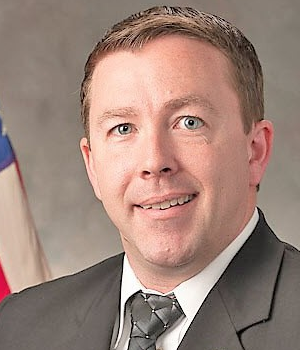
The best strategy for managing multiple projects has to be delegation – managed appropriately. None of us has the ability to multi-task, our brain simply can’t do that. We all, however, have varying aptitudes with serial-tasking – the ability to change from one task to another quickly. We may think we are multi-tasking when we do this, but it is simply not possible.
When I have multiple projects that need to be completed, I rely upon my team to pick up parts that they can manage, and I am sure to follow-up with them regarding those tasks. The One-Minute Manager taught me an effective method for delegating these tasks and I still use it today.

As a rocket scientist, I ALWAYS have multiple projects at once. I compare my job to a juggler. When I am reacting to a project (the ball), the ball is in my hand and I can work on it. If I get stuck on an idea or waiting on something/someone to do their part; the ball goes in the air while the next ball reaches my hand. The cycle continues until a new ball (project) gets thrown into the loop or the project is completed, and the ball gets put down.
The best strategy is not to focus on all the balls at once or solely on one ball, otherwise you miss the one in your hand and they all fall. Be systematic and thorough when the ball is in your hand, then let it go and come back to it. You will find the process to be less stressful and the project will be successful.

2. Know where the risks to execution hide and develop a plan for reacting when the risks are realized.
3. Make sure that the people doing the work are available and not over-burdened.
4. Use project management software to track your progress. Look ahead in your plans, as well, to anticipate any problems.
5. A conflict resolution approach that I’ve had success with is to present as many alternatives as possible to your stakeholders when addressing issues. For those stakeholders that want their projects to move faster that originally agreed, it’s appropriate to ask what’s changed that we need to change the schedule and know what the impact to the schedule will be if the change is made.

Project management is an important skill to have in a fast-paced society. If you are unable to manage multiple projects at once and inefficient with your workload, that will work against you as you will not be a competitive asset for your employer. We are often overloaded with one project after another, but the most important way to acquire this skill is to seek help. No one becomes great on their own, and more importantly, your superiors are there for a reason.
If you find yourself drowning in work to the point where you are accomplishing nothing, you need to prioritize your workload. Granted, this is something that should happen before you get to the point of being overwhelmed, but nonetheless, it needs handling. Take time to lay out all of your projects, then schedule a meeting with your manager to set a priority list. Regardless of if you are overwhelmed or not, project priorities can often change, so do not assume what you have set will not change. Check in often to be sure the priority agreed upon is still valid so you are able to meet deadlines, deliver data, etc. as expected.
Once you have your priority list, comb through every project and rank them by difficulty. Your high priority project may be simple or complicated, but by ranking difficulty, you can plan your multitasking appropriately. While waiting for results for one project, knowing the level of difficulty will allow you to determine what projects can be fit in during those hold times and not overwhelm you since a plan has been established.
You will find that prioritization planning will not only relieve stress but also increase your efficiency and visibility as you are in constant communication with leadership. This not only demonstrates your commitment to meeting corporate goals but highlights an admirable work ethic.
This article has been edited for length and clarity. The opinions expressed in this article are the author's own and do not necessarily reflect the view of their employer or the American Chemical Society.
ACS Career Consultants are experts and leaders working in the field of chemistry who have volunteered to support other ACS members’ career development through one-on-one career counselling. They can stimulate your thinking, ask important career planning questions to help clarify goals, provide encouragement, teach strategies for making meaningful career decisions, and aid you in your job search. Connect with an ACS Career Consultant today!
Copyright 2020 American Chemical Society (All Rights Reserved)







